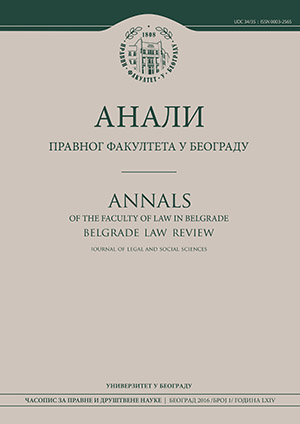О УСЛОВЉЕНОЈ И УСМЕРЕНОЈ СЛОБОДИ УГОВАРАЊА ПРИВРЕДНИХ СУБЈЕКАТА
ON CONDITIONED AND DIRECTED FREEDOM OF CONTRATS BETWEEN BUSINESS ENTITY
Author(s): Marko Đurđević, Dragan PavićSubject(s): Constitutional Law, Civil Law, Law on Economics
Published by: Правни факултет Универзитета у Београду
Keywords: Contract; Freedom of contracts; Mandatory rules; Public policy (l’ordre public);
Summary/Abstract: The term conditioned freedom of contracts appeared in our legal theory before the adoption of the Obligations Relations Act, whereas the term directed freedom of contracts occurred after the Act’s entry into force. Both terms were used to signify transformation of freedom of contracts within the legal system based on ideology of socialism, social ownership of the means of production and government ruled economy and, afterwards, “coordinated economy”. Conditioned freedom of contracts originated from the right to use the means of production in social ownership. This right, which belonged to social (state-owned) companies, consisted of two components. The first, public-law component conditioned the second, private law component, by means of norms in individual administrative acts and administrative regulations. As these norms were an expression of state power, they make the contract subordinate: individual administrative act is a condition for the conclusion of contract, and administrative regulations for its validity. Directed freedom of contracts is freedom of making contracts directed by economic order established by the Constitution, systemic laws, and partially by the norms of the basic principles of the Obligations Relations Act which are related to social companies.
Journal: Анали Правног факултета у Београду
- Issue Year: 64/2016
- Issue No: 1
- Page Range: 84-104
- Page Count: 21
- Language: Serbian

